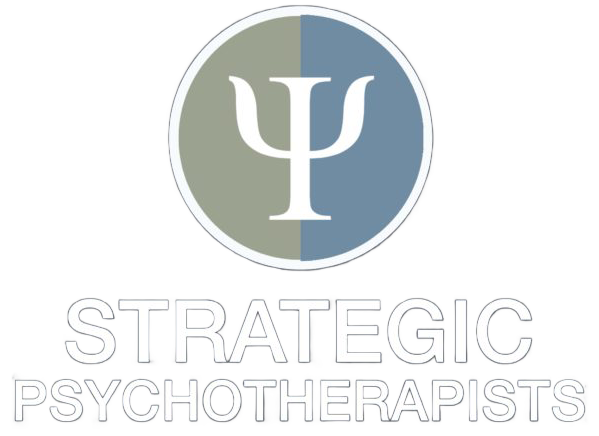Do you have any of these signs of anxiety?
- Do you have a very strong need to always be in control?
- Do you feel as if things often get on top of you? Feel overwhelmed?
- Do you have trouble getting to sleep or wake often, worrying?
- Do you find that one mistake or bad remark, can ruin your whole day?
- Do you regularly feel frustrated and short–tempered?
- Do you lack confidence in your abilities? Aim for perfectionism at all times?
- Do you have trouble focusing on tasks?
- Do you avoid doing things outside your comfort zone?
- Do you have an inner voice constantly reminding you that you are not good enough?
- Do you struggle to remember the last time you got really excited about something?
- Or maybe you just feel stuck, not sure of how to move forward?
Anxiety is fast becoming the most common mental illness, yet studies show that a huge percentage of people never seek treatment.
Physical effects of anxiety
Relieving anxiety is much more important than simply enjoying feeling a renewed sense of calm. There are serious consequences for your long term health when you experience prolonged periods of stress. When you are feeling anxious or stressed, your body produces the fight or flight hormones, adrenaline and cortisol, which are designed to spur you into action because they have recognised a potential threat. These are meant to be immediate and short acting to get you out of danger.
But when they are continually released they negatively impact your physiology and can cause many chronic health conditions.
These include changes in the; digestive system, the immune system, the cardiovascular, the respiratory and the urinary systems.
Anxiety can manifest as one or several physical symptoms such as sweating, nausea, shaking, sleep problems, fatigue, weakness, difficulty concentrating, dizziness, digestive issues, feeling too cold, or too hot, in severe cases panic attacks, chest pain, and hyperventilating.
But often people might fail to be aware of these other very common signs that anxiety is negatively impacting your life.
What is the treatment for anxiety?
One of the keys to understanding Anxiety is to know that it is a response to a ‘threat’, whether it is real, or imagined. Most anxiety stems from our fear or worry of something that hasn’t happened yet. So by definition it is imagined. Your mind has projected into the future and ‘imagined’ the worst, your brain doesn’t know the difference between that which is real and that which is imagined, it responds to the thought. So, after your body responds, you get physical symptoms such as feeling nervous, restlessness, maybe a fast heart rate or dizziness and this compounds your belief that the ‘threat’ is worth worrying about. This becomes a pattern that over time becomes a predictable loop.
Understanding this process means that we can recognise the specific pattern that you are running, we can interrupt it, and you no longer have to let ‘anxiety’ affect you.
The effects can positively ripple through all areas of your life as you feel more calm and confident, and you can look forward to a different way of being, more like the old you, or perhaps even a brand new you.
Anxiety related issues
Sometimes it can seem as if the fast pace of life is placing forever increasing demands on our attention and our time. Leaving little time to sit back, take stock and really decide where we want our future to be. The increasing pressures and challenges can suck the joy out of life and make everyday living seem like a chore. Can you remember the last time you felt really relaxed? Or the last time you did a real belly laugh?
Do you feel as if you are just getting by, fearful that one extra demand, responsibility or drama will tip the balance?
Then it’s time to take that first step to feeling calmer, more relaxed and more in control.
Many of the problem behaviours that we have and wish we didn’t, stem from our way of coping with stress and anxiety. If you think about it, it’s possibly been a sensible self–protection strategy to enable you to be successful in other areas of your life. But now that you have recognised this is not working for you, you can find a new strategy.
Obsessive Compulsive Behaviours
Obsessions are frequent intense thoughts, ideas or images that keep recurring. They are not logical, and are usually upsetting, causing discomfort to the person experiencing them.
Compulsions are the repeated behaviours, thoughts, or rituals that reduce the anxiety from the obsessive thoughts, or help the sufferer to feel safer, in the mistaken belief that only performing the action will prevent the imagined consequence occurring, or stop the thoughts recurring. Even when the person logically knows the ritual won’t help, they feel relief when the ritual or behaviour is carried out.
Some common compulsive behaviours:
- Hand washing
- Checking
- Arranging (into patterns or symmetry)
- Counting
- Mental rituals.
Obsessive Compulsive thoughts and behaviours can be very effectively helped with psychotherapy. By interrupting the patterns and distorted thoughts it is possible to overcome the problem.
Nail biting
It’s common for people to think that nail biting is just something they do without thinking, and because they aren’t aware of it at the time they are doing it, find it hard to come up with solutions to help them stop. Nail biting is one of a range of habits that we formed, often as a distraction or coping mechanism to some stressful situations. It’s only when people consciously try to stop that they realise, there’s more to it than just a bad habit. Hypnotherapy can help you to interrupt the default pattern and give you alternative strategies for dealing with stress.
Hair pulling - Trichotillomania
Occasional hair pulling can be quite normal, but when it is frequent or regular, becomes difficult to stop, and causes you considerable distress then it may highlight a more serious underlying issue. People who have this problem feel embarrassed, ashamed and often have low self-esteem. It can have a huge impact on your life. It might lead to you avoiding social situations, which can affect your education, or your career, or lead to avoiding close or intimate relationships. It most commonly begins around the early teen years. Sometimes it might be triggered by a stressful situation, other times it might become a habit with no obvious trigger. It can sometimes occur in recurrent episodes, or be a long term issue. Hair pulling does not simply lead to having less hair, you may experience skin infections, or scarring, or permanent hair loss. Hair pulling is a sign that anxiety is negatively affecting your life, and may also be a factor in anxiety and depression, so it’s vital that you seek help.
Hypnotherapy for anger management
We all feel angry at times, but how do you know if you are no longer in control of your anger?
Do any of these seem familiar to you:
- Frequently get annoyed over little things?
- Often feel irritable?
- Feeling tense or wound up?
- Fly off the handle easily?
- Experience regular road rage?
- Always short tempered?
- Feelings of rage?
- Dwelling on negative remarks or incidents?
- Difficulty calm yourself down?
- Feelings of remorse after you ‘exploded’ in anger.
If you are regularly experiencing one or more of these, then it’s likely that you are no longer in control of your anger, and it’s time to seek help. Many people only seek help when they realise there relationships are being seriously affected. Perhaps your partner has given you an ultimatum? Maybe you saw a look of fear in your child’s eyes as you flew into a rage over a minor incident? Or maybe you realised that you take so much longer to calm down than you used to? Being constantly angry isn’t only all in the mind, it’s affecting your body. The natural chemicals produced when you are angry have a negative effect on your body, potentially leading to other problems. People often think that they can’t handle their response unless they avoid the triggers ‘that make them mad’. Avoidance is contributing to the problem being maintained. Hypnotherapy can show you an alternative way of doing things.
Hypnotherapy for panic attacks
Panic attacks are extremely unpleasant and can be very scary. Panic attacks can develop unexpectedly, often can be triggered by something you are not consciously aware of. You might appear to be in a calm state, or can occur when you are feeling highly anxious, but the signals between your brain and your body convey that something is very wrong, and your brain believes it, because now it’s got the physical evidence– your heart races, you feel sweaty, maybe tingly hands or lips, your breathing is fast and shallow, you might feel nauseous or dizzy, have a heaviness in your chest, you feel a sense of intense fear or dread. All very real physical symptoms. Thankfully most panic attack symptoms begin to subside within around 10 minutes.
If you’ve ever had a panic attack you will probably hope that you never have another one, but subsequent episodes are more likely. Some people think that having a panic attack is a sign of weakness, they can be too embarrassed to tell anyone and might only seek help when an episode is witnessed by someone they know. Rather than ignore a panic attack- take it as a positive message, that you really do need to make some changes in your life. Because a panic attack is relatively brief and unpredictable it might not be obvious to the sufferer, just how easily treatable the problem is. There are some very simple techniques that can help you to reduce the severity of a panic attack, or never have one again.
Should I seek treatment for anxiety?
Yes.
Psychotherapy combined with hypnotherapy can help you to recognise the process by which the problem is created and maintained, and then change that response to one which is more useful. It’s so much easier than you might think.













 I acknowledge the Bunurong People of the Kulin Nation and their Elders past and present as the Traditional Owners and Custodians of the land where I live and work.
I acknowledge the Bunurong People of the Kulin Nation and their Elders past and present as the Traditional Owners and Custodians of the land where I live and work. All are welcome
All are welcome